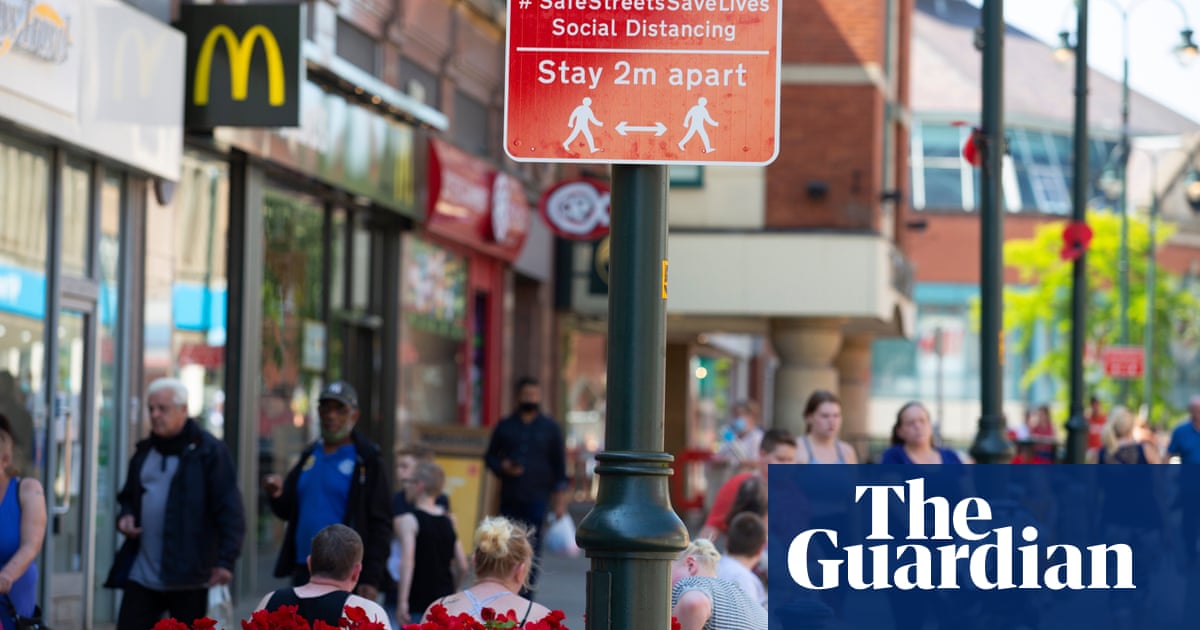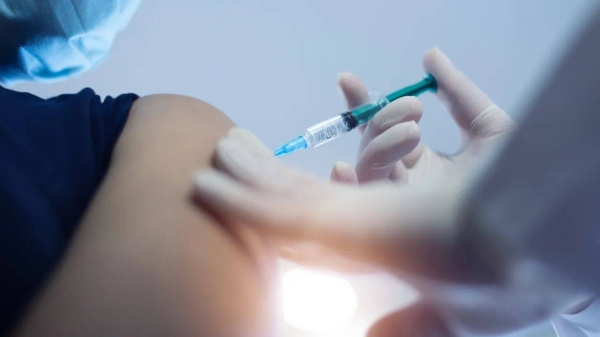
A pilot scheme exploring the impact of large-scale events on Covid-19 transmission that found “no substantial outbreaks” in tens of thousands of participants was compromised by the low uptake of gold-standard PCR testing before and after the events, experts say.
In the first phase of the Events Research Programme (ERP), commissioned by the prime minister in February, 58,000 participants attended indoor and outdoor venues across England, including in Liverpool, Sheffield and London. The ERP aims to assess the safety of mass gatherings during the pandemic and whether they affect rates of infection.
Overall, 28 positive cases of Covid were identified – including 11 that were flagged as potentially infectious at an event and a further 17 as potentially infected at or before/after an event, the report published on Friday said.
These events during the first phase of the ERP in April and May – which featured the FA Cup final, the Brit Awards and the World Snooker Championship – occurred when levels of community transmission were low and therefore these numbers reflect that low transmission rate, the report authors suggested.
In a foreword, Nicholas Hytner and David Ross, chief advisers for the ERP, said the report “does not make conclusive public health recommendations on the reopening of events at this stage”.
Scientists have warned that it is very difficult to draw any conclusions from the tests because although all event attenders were required to provide a negative rapid test – a lateral flow test – as the condition of entry into the events, they are not considered as effective as the gold standard PCR test.
PCR testing before and after an event was a voluntary request for attenders. Although PCR tests take at least a day to give results, they are far more reliable.
Paul Hunter, a professor of medicine at the University of East Anglia, said it was difficult to draw any valid conclusions about the magnitude of the Covid transmission risk, because only a small proportion of people tested were tested after the event.
“I don’t think we can actually draw many strong conclusions out of this at all really – other than there does seem to be an increased risk associated with indoor events compared to outdoor events. But we knew that already,” he said.
Allyson Pollock, a clinical professor of public health at Newcastle University, labeled the report a “very poor study” and a “public scandal”, suggesting more than £2bn had been spent to gather evidence of very “low return rate and very low yield”.
The government was trying to balance the economic benefits of opening events against the harms they are going to cause by spreading Covid, said Jon Deeks, a professor of biostatistics at the University of Birmingham. “But they haven’t really got that counted properly.”
The report said that measures such as social distancing, mask-wearing and ventilation were key to transmission risk – and that no major outbreaks occurred despite the 28 cases. Large indoor events with big crowds close to each other may also pose a higher risk of transmission as a result of close proximity and poor ventilation, it added.
The report was welcomed by the hospitality industry. “Out of the first nine test events, attended by 58,000, only 28 cases were recorded. It’s time to give us the certainty that we have been crying out for, and open the night-time economy fully, no more excuses,” said Michael Kill, the chief executive of the Night Time Industry Association.
Jamie Njoku-Goodwin, the UK Music chief executive, said the report “vindicates the massive efforts and innovations our sector has made to restart the live music industry. Now we have evidence showing events can take place safely, the government must now give the green light for events to go ahead without social distancing from 19 July”.
The ERP will continue to collect data on events that have already occurred and those that are planned.
In July, more than 60,000 fans will be allowed into Wembley for the semi-finals and final of Euro 2020. Deeks said the main reason the positive cases were low in the initial dataset was because of the very low prevalence of disease at that time. “But it won’t be as good at the Euro 2020 finals,” he added.
Robert West, a professor of health psychology at University College London who sits on the advisory group on behavioural science for Sage, said: “The so-called trials taking place seem to be little more than smokescreens behind which the government intends to go ahead with opening up facilities and events whatever the risk.
“The trials themselves lack the ability to detect clinically important increases in community infection rates and may well fail to generalise to future scenarios. Meanwhile, the government pigheadedly avoids properly implementing proven infection control measures.”
The culture secretary, Oliver Dowden, said: “Our innovative and science-led Events Research Programme is helping us to better understand how the risk of transmission at major events can be effectively mitigated.
“The findings and learnings will help event organisers plan for large audiences as we move to step four of the roadmap.”












